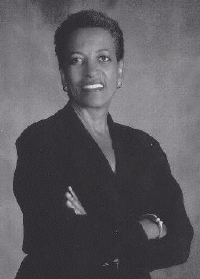 |
 |
 |
|
|
||||||||||||
|
|
||||||||||||
| Email Article | Printable Page |
More White Schools Granting Degrees to Black Students
 |
|
Photo credit: http://www.bennett.edu/
"If you attended a historically black college or university, do not dare not give back," said Bennett College President Johnnetta Cole.
|
Historically black colleges and universities continue to play a critical role in producing African American graduates, but they are losing ground to other institutions, a new study shows.
Florida A&M University in Tallahassee, Howard University in Washington, and Southern University in Louisiana are the top historically black universities for conferring degrees.
But other public and for-profit institutions granted even more degrees to African Americans, with Georgia State University in Atlanta, Temple University in Philadelphia and Florida State in Gainesville taking the lead.
At black colleges, �growth in the number of degree conferrals has stagnated, while other schools have experienced significant growth,� said Dr. Victor M.H. Borden, associate vice chancellor and associate professor, from Indiana University-Purdue University Indianapolis.
�This is largely because of a lack of resources. The private for-profit institutions such as Devry [University in Oakbrook Terrace, Ill.] and University of Phoenix are aggressively recruiting students, which, due to financial constraints, HBCUs have not been able to do.�
At the Black Issues in Higher Education Conference in Arlington, Va., scores of education experts gathered June 18-19 to assess the barriers people of color still face in higher education and to develop a strategy.
The number of baccalaureate degrees conferred by historically black colleges has been fairly stable at about 25,000 over the past six years.
But during that time, degrees conferred by other institutions increased from 65,000 to 86,000. As a result, the proportion of baccalaureates conferred by HBCUs has fallen from 28 percent to 23 percent.
Borden conducted the study with Pamela C. Brown, an enrollment specialist from Indiana University-Purdue University in Indianapolis. It was presented amid continuing celebration of the 50th anniversary of the Brown v. Board of Education decision that ended legal segregation in public schools.
The 2002-2003 figures show that FAMU, Howard and Southern awarded 1,408, 1,001 and 884 degrees, respectively. However, only FAMU increased its numbers over the 2001-2002 year -- by 103 degrees. The number of degree recipients at Howard fell by 66 and at Southern by 10.
The study reported that black colleges award one in five undergraduate degrees conferred to African American students when compared to other institutions. The researchers said the findings emphasize the importance of HBCUs as they graduate a high percentage of black students.
Other HBCUs that graduate large numbers of African American students are North Carolina A&T State, Hampton, Tennessee State, Morgan State, Jackson State, Norfolk State and Prairie View A&M universities, the study said.
The report also revealed high black graduation rates at some traditionally white institutions. Georgia State, Temple and Florida State universities led the top ten of all institutions awarding degrees to African Americans, Borden said. Others in the top 10 are Chicago State, the University of Maryland-College Park, University of Maryland-University College, Southern Illinois University-Carbondale; Florida International University, Florida Atlantic University-Boca Raton and the University of Memphis. Borden said he thought these traditionally white institutions were able to confer a large number of degrees on African Americans because they are located in urban areas where many blacks live.
�Georgia State and Temple are located in downtown Atlanta and Philadelphia, respectively, where there are high concentrations of African Americans. These numbers cannot be compared to, for example, University of Michigan, as the enrollment numbers of blacks are vastly different,� Borden said.
Bennett College President Johnnetta Cole urged conference attendees to give back to HBCUs because many of the schools need financial support to keep their doors open.
�If you attended a historically black college or university, do not dare not give back. If you did not attend one, adopt one,� Cole said.
Cole also noted that despite progress since the Brown decision, barriers in higher education do not begin at the college level, but in primary and secondary schools.
�The race for the American dream is not fairly judged. When the starting gate is opened, it does not open at the same time for people of color,� Cole said. �In some school districts, black students are being taught word processing without word processors, while their white counterparts in the affluent districts have state-of-the-art labs comparable to those in some of the top universities.�
University of Baltimore student Trina Yarborough said she �gained a lot from attending the conference. I now know the importance of having a terminal degree,� the master's of business administration candidate said. �I thought a master's degree was great and was intimidated by the research required for a Ph.D., but now I am thinking about it.�
Black Issues in Higher Education plans to publish the top 100 graduate degree producers later this month. For more information, visit http://www.blackissues.com
Posted June 24, 2004
In News
More HBCU Newspapers Increase Frequency
Southern U. Records Drop in Campus Crime
| Home | News | Sports | Culture | Voices | Images | Projects | About Us Copyright © 2006 Black College Wire. Black College Wire is a project of the Black College Communication Association and has partnerships with The National Association of Black Journalists and the Robert C. Maynard Institute for Journalism Education. |